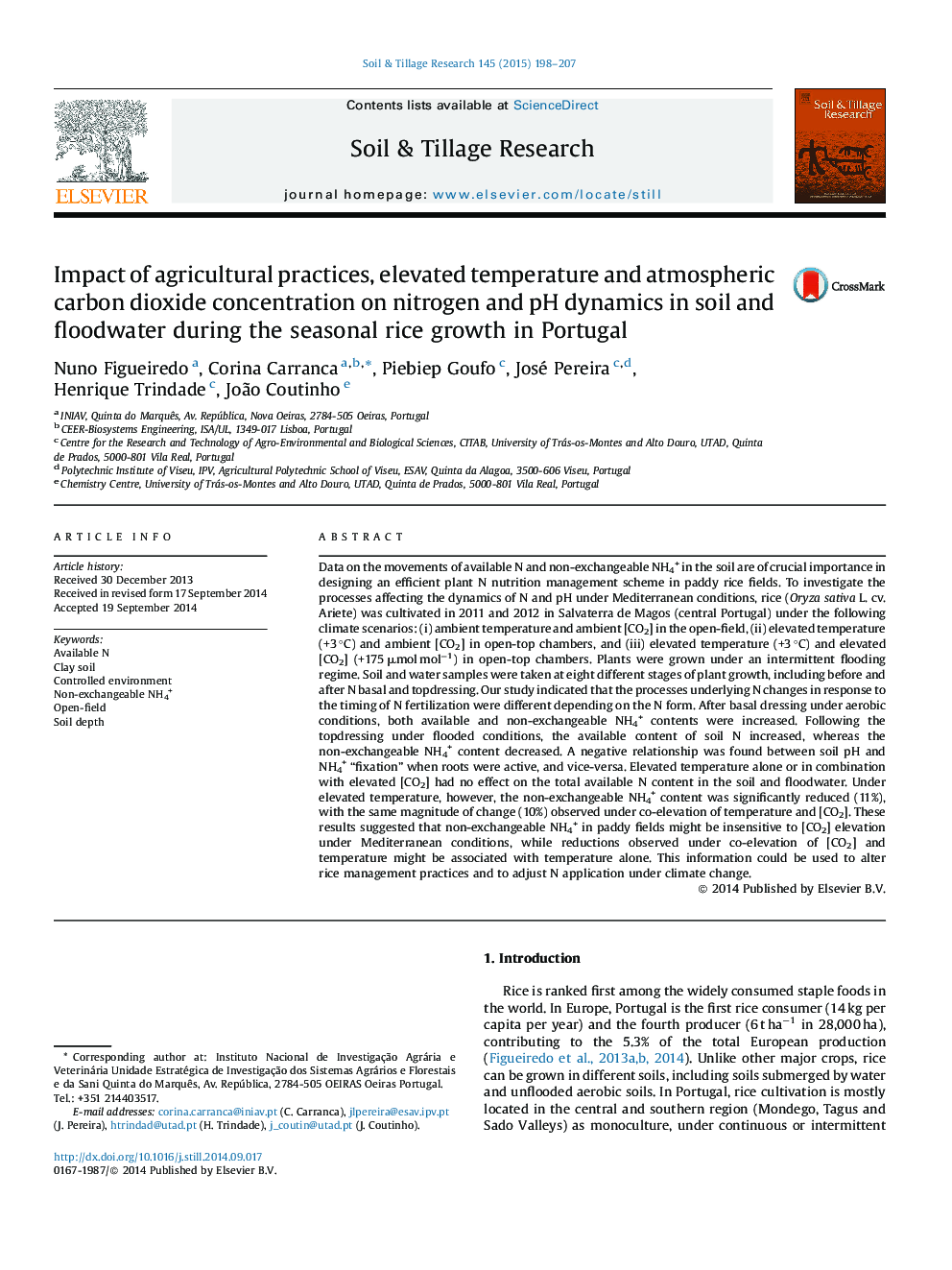| Article ID | Journal | Published Year | Pages | File Type |
|---|---|---|---|---|
| 305654 | Soil and Tillage Research | 2015 | 10 Pages |
•In paddy rice, soluble N and pH in floodwater were not affected by climate change.•Temperature + [CO2] elevation had no effect on available soil N but increased the pH.•Immediately after the basal dressing with NH4 fertilizer, NH4 was “fixed” in clay at a rate of 25%.•Climate change (elevation of temperature + [CO2] and of temperature alone) reduced NH4+ “fixation” by 10–11%.
Data on the movements of available N and non-exchangeable NH4+ in the soil are of crucial importance in designing an efficient plant N nutrition management scheme in paddy rice fields. To investigate the processes affecting the dynamics of N and pH under Mediterranean conditions, rice (Oryza sativa L. cv. Ariete) was cultivated in 2011 and 2012 in Salvaterra de Magos (central Portugal) under the following climate scenarios: (i) ambient temperature and ambient [CO2] in the open-field, (ii) elevated temperature (+3 °C) and ambient [CO2] in open-top chambers, and (iii) elevated temperature (+3 °C) and elevated [CO2] (+175 μmol mol−1) in open-top chambers. Plants were grown under an intermittent flooding regime. Soil and water samples were taken at eight different stages of plant growth, including before and after N basal and topdressing. Our study indicated that the processes underlying N changes in response to the timing of N fertilization were different depending on the N form. After basal dressing under aerobic conditions, both available and non-exchangeable NH4+ contents were increased. Following the topdressing under flooded conditions, the available content of soil N increased, whereas the non-exchangeable NH4+ content decreased. A negative relationship was found between soil pH and NH4+ “fixation” when roots were active, and vice-versa. Elevated temperature alone or in combination with elevated [CO2] had no effect on the total available N content in the soil and floodwater. Under elevated temperature, however, the non-exchangeable NH4+ content was significantly reduced (11%), with the same magnitude of change (10%) observed under co-elevation of temperature and [CO2]. These results suggested that non-exchangeable NH4+ in paddy fields might be insensitive to [CO2] elevation under Mediterranean conditions, while reductions observed under co-elevation of [CO2] and temperature might be associated with temperature alone. This information could be used to alter rice management practices and to adjust N application under climate change.
